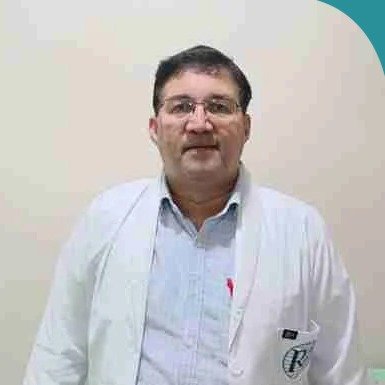ENT stands for Ear, Nose, and Throat, which is a medical specialty focused on the diagnosis, treatment, and management of conditions related to the ears, nose, throat, and related structures of the head and neck. ENT doctors are also known as otolaryngologists.
Conditions that may be treated by an ENT specialist include ear infections, hearing loss, tinnitus (ringing in the ears), sinus infections, allergies, nasal congestion, snoring, sleep apnea, sore throat, tonsillitis, voice disorders, and cancers of the head and neck. ENT specialists may also perform surgeries to treat these conditions, such as tonsillectomies, adenoidectomies, septoplasties, and sinus surgeries.
ENT specialists undergo extensive training in the medical and surgical management of disorders of the ear, nose, throat, and related structures. They may work in private practice or in hospitals and medical centers, and may collaborate with other healthcare providers such as audiologists, speech therapists, and respiratory therapists to provide comprehensive care to patients with ear, nose, and throat disorders.
What are the several tests that ENT department suggest?
The specific tests that an ENT department may suggest can vary depending on the patient's symptoms and medical history. However, here are some examples of tests that an ENT specialist may recommend:
- Hearing tests: Audiometric tests can evaluate a patient’s hearing, including the type and degree of hearing loss.
- Imaging tests: Imaging tests such as CT scans, MRI scans, or X-rays can help diagnose conditions affecting the ear, nose, and throat, including tumors, infections, and structural abnormalities.
- Allergy tests: Allergy tests can identify specific allergens that may be causing sinus or respiratory symptoms.
- Endoscopy: Endoscopy is a minimally invasive procedure that involves using a thin, flexible scope with a camera to visualize the inside of the nasal cavity, throat, or larynx.
- Swallowing studies: Swallowing studies, such as a modified barium swallow test or fiberoptic endoscopic evaluation of swallowing, can evaluate the function of the throat muscles and determine the cause of swallowing difficulties.
- Biopsy: A biopsy may be performed to diagnose cancer or other abnormal growths in the head and neck.
These are just a few examples of the types of tests that an ENT department may suggest. The specific tests ordered will depend on the patient’s individual symptoms and medical history. It is important for patients to discuss their concerns and symptoms with their ENT specialist to determine the most appropriate diagnostic tests and treatment options.
What are the surgeries performed by ENT department?
The surgeries performed by an ENT (ear, nose, and throat) department or specialist may vary depending on the specific conditions being treated. Here are some common surgeries that an ENT specialist may perform:
- Tonsillectomy: A tonsillectomy is the surgical removal of the tonsils, which may be necessary for patients with recurrent tonsillitis, sleep apnea, or other conditions affecting the tonsils.
- Adenoidectomy: An adenoidectomy is the surgical removal of the adenoids, which are located at the back of the nose and can become enlarged and cause breathing problems in children.
- Septoplasty: A septoplasty is a surgical procedure to straighten the septum, the cartilage that separates the nostrils, in order to improve breathing and reduce congestion.
- Sinus surgery: Sinus surgery may be necessary for patients with chronic sinusitis or other conditions affecting the sinuses. Different types of sinus surgeries may be performed, including endoscopic sinus surgery, balloon sinuplasty, and traditional sinus surgery.
- Ear tube surgery: Ear tube surgery, also known as myringotomy, involves the insertion of small tubes into the eardrums to improve drainage and reduce the frequency of ear infections.
- Thyroid surgery: ENT surgeons may also perform thyroid surgery to remove all or part of the thyroid gland, which is located in the neck and produces hormones that regulate metabolism.
These are just a few examples of the types of surgeries that an ENT department or specialist may perform. The specific surgery performed will depend on the patient’s individual condition and symptoms. It is important for patients to discuss their treatment options with their ENT specialist to determine the most appropriate course of action.
How to choose a correct ENT hospital?
Choosing the right ENT hospital can be an important decision in getting the best care for your ear, nose, and throat conditions. Here are some factors to consider when choosing an ENT hospital:
- Reputation and experience: Look for an ENT hospital with a good reputation and a track record of successful outcomes. Check if the hospital has experienced and skilled ENT specialists with expertise in the specific conditions you need treatment for.
- Services and technology: Make sure that the hospital provides a wide range of ENT services and has access to the latest technology and equipment. This can be important for accurate diagnosis and effective treatment.
- Location and accessibility: Consider the location of the hospital and whether it is easily accessible for you. You may also want to consider the availability of parking and public transportation.
- Insurance coverage: Check if the hospital accepts your insurance and what out-of-pocket costs you may incur.
- Patient reviews: Read patient reviews and testimonials to get an idea of the quality of care provided by the hospital and its staff.
- Referrals: Ask your primary care physician or other healthcare professionals for recommendations on a good ENT hospital in your area.
It is important to take your time and research your options carefully before choosing an ENT hospital. You want to ensure that you receive the best care for your specific condition and that you feel comfortable with the care team. Consider scheduling a consultation with an ENT specialist at the hospital to discuss your concerns and questions before making a final decision.

Dr. T Dinesh Singh
MBBS, MS (ENT)
Diploma In Otorhinolarynglogy (DLO) consultant ENT Surgeon
OPD Hours
Monday – Saturday
6.30 p.m to 8 p.m
Emergency Cases
Please feel welcome to contact our friendly reception staff with any general or medical enquiry call us.

WELCOME TO RUSSH SUPER SPECIALITY HOSPITALS
Our Russh Hospital has been built in an area of 45,000 Sft, located at Suchitra x road, Medchal, Hyderabad, which is one of the busiest business oriented areas in the Hyderabad city with a resident population of about 4 to 5 lakhs and a floating population of about 8 lakhs. People from the surrounding six Districts (Ranga Reddy, Hyderabad, Medak, Nizamabad, Adilabad, Karimnagar) pan through the Centre in approaching the city. We have branches at Suchitra circle, Kompally, Kamareddy and Medak. And Suchitra brach is NABH accredited.
